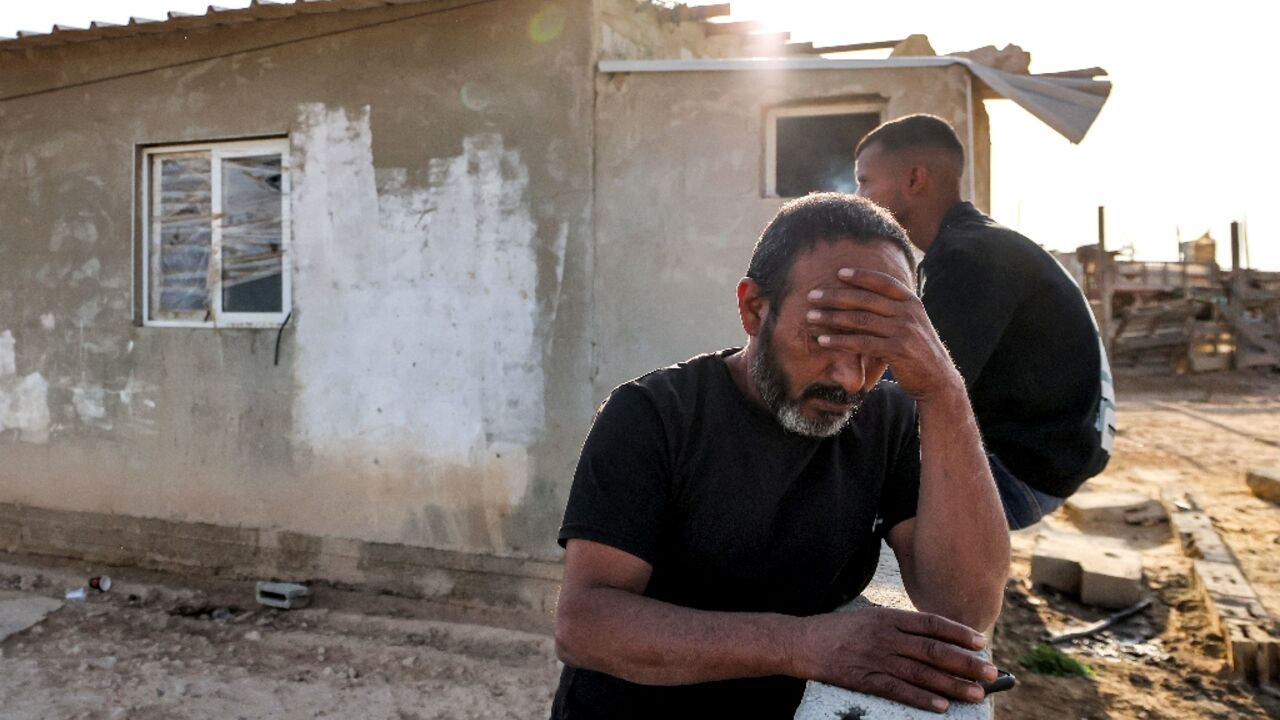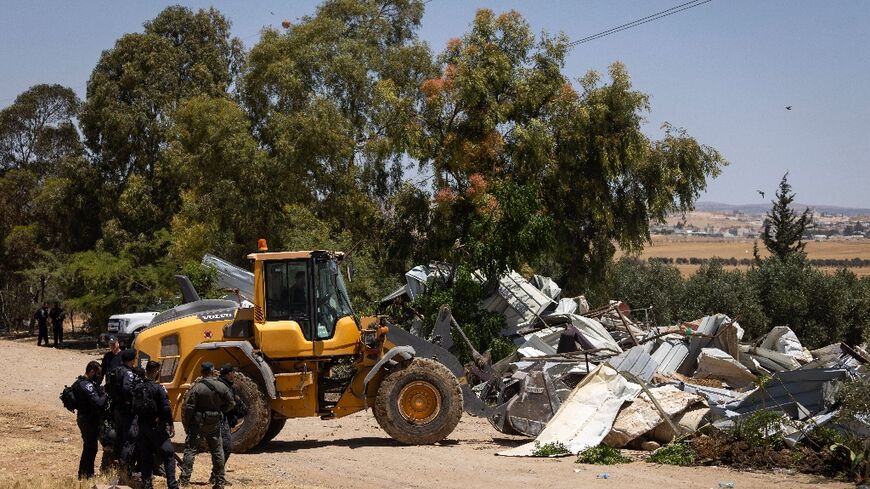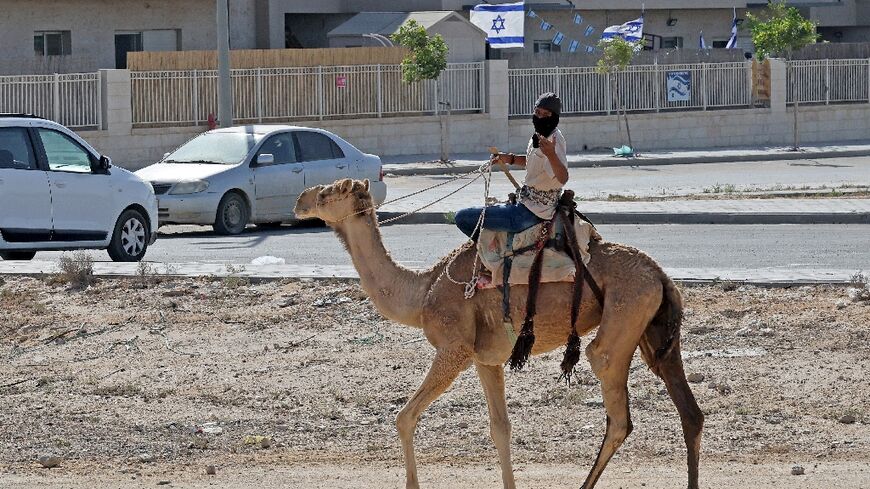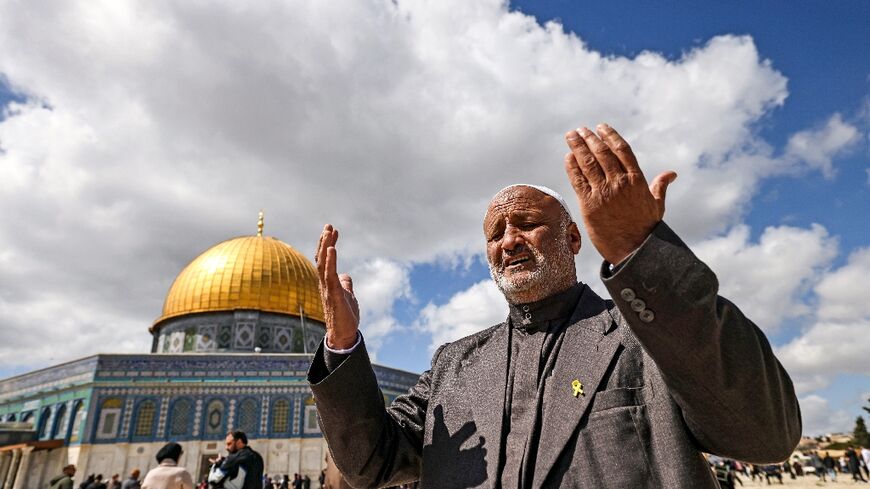Anger among Israeli Bedouins after girl wounded in Iranian attack

In his spartan home in Israel's Negev desert, Mohamed Hassouna points to the spot where his seven-year-old daughter Amina was seriously wounded by a fragment of a projectile during Iran's attack on Israel.
Amina, the only badly injured person recorded in Israel in this unprecedented attack by Tehran, was placed in intensive care with a serious head injury, said the Soroka hospital in the city of Beersheva.
The little girl belongs to the Bedouin community, descendants of Muslim Arab shepherds who live in the Negev and are often denied many of the rights granted to other citizens.
"We have no shelter," lamented Amina's father, who criticised Israeli authorities for leaving him and his family at the mercy of rockets and missiles.
Many Bedouin communities have lived on the margins, and are often accused by authorities of settling on desert lands without official authorisation.
While most Israelis have access to bomb shelters, many Bedouin communities are not allowed to build them.
Their villages, on paper, do not exist, and no road signs lead to them.
In the desert Bedouin community of Al Fura, 40 kilometres (25 miles) south of Beersheva, Hassouna was preparing to go back to the hospital to visit his daughter and pray for her recovery.
- Destruction order -
Iran launched more than 300 drones, rockets and missiles towards Israel from late Saturday in their first ever attack on Israeli territory.
The barrage of launches came in response to a strike against the Iranian consulate in Damascus on April 1, blamed on Israel, in which seven people died, including two senior generals.
Mohamed Hassouna, aged 49 and a father of 14 children, showed AFP the impact of the missile part that perforated the tin roof of his home in Al Fura, a Bedouin village not recognised by the Israeli authorities.
Before Israel's creation in 1948, the Negev desert was home to approximately 92,000 Bedouins. But only 11,000 remained within Israel's borders after the 1948 Arab-Israeli War, according to Adalah, an advocacy group for Arab minorities in Israel.
Many of them refused to be resettled in the cities, and Bedouins have continued to face difficulties in Israeli society ever since.
Today there are around 300,000, half of whom live in cities and half in villages not recognised by Israel, according to Adalah.
These villages lack most basic services, such as garbage collection.
- 'We demand our rights' -
Hassouna, who said he works in a solar panel factory, does not have electricity at his home.
He was reluctant to speak to the media who he said "come to film us but do not help us build shelters".
Sitting on a plastic chair outside his makeshift home, he held up a demolition order he had received two weeks previously.
"The state does nothing for us," said another man, who asked not to be named.
A report last month by the Israeli parliament's research centre denounced what it called a "lack of protection" for those living in Bedouin villages.
It said seven Bedouin were killed by missiles fired from the Gaza Strip during the Hamas attack of October 7.
Outside the Soroka Hospital, where Amina lies critically injured, the president of the regional Bedouin council did not hide his anger.
"We demand all of our rights," Jabbar Abu Caf told AFP. "We must have protection for our villages -- we must act together with the government to make sure there are no further victims.
"It's always the Bedouins who suffer, whether the shooting comes from the east or the west," he said.
"We are the victims, and nobody takes us into account."






